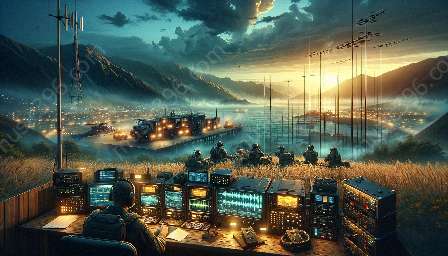Radio has long been a critical source of information during emergencies and crises, shaping public perception and influencing action. In this topic cluster, we delve into the role of radio in public opinion formation, the impact of radio's coverage of emergencies on public perception, and the resulting influence on public action.
The Role of Radio in Public Opinion Formation
Radio serves as a crucial platform for the formation of public opinion. Through news bulletins, talk shows, and special reports, radio disseminates information, facilitates public discourse, and engages listeners in critical discussions. As a trusted source of information, radio has the power to shape public opinion on various matters, including emergencies and crises.
Radio's Coverage of Emergencies and Crises
During emergencies and crises, radio plays a central role in providing up-to-date and impactful coverage. Through live broadcasts, interviews with experts, and firsthand accounts, radio delivers real-time information that can significantly influence public perception. The tone, narrative, and depth of coverage by radio stations have a profound effect on how the public perceives and responds to these critical events.
Shaping Public Perception
Radio's coverage of emergencies and crises has the power to shape public perception in multiple ways. The language used, the framing of stories, and the emphasis placed on certain aspects can all influence how the audience views the situation. Through the emotional impact of audio storytelling, radio can evoke empathy, fear, and urgency, ultimately molding public perception of the crisis at hand.
Influencing Public Action
Public action is often driven by the information and guidance provided by radio during emergencies and crises. Whether it's through emergency alerts, safety instructions, or calls for assistance, radio broadcasts can prompt individuals and communities to take specific actions. Additionally, radio's capacity to mobilize resources, organize support, and rally public solidarity can lead to tangible responses that shape the outcome of the crisis.
The Interplay of Public Opinion Formation, Radio, and Crisis Coverage
The relationship between public opinion formation, radio, and crisis coverage is dynamic and intricate. In this symbiotic interaction, radio both reflects and influences public sentiment, mediating the public's understanding and response to emergencies and crises. As a result, the role of radio in shaping public opinion and driving collective action during critical events is a fundamental aspect of its societal impact.









































